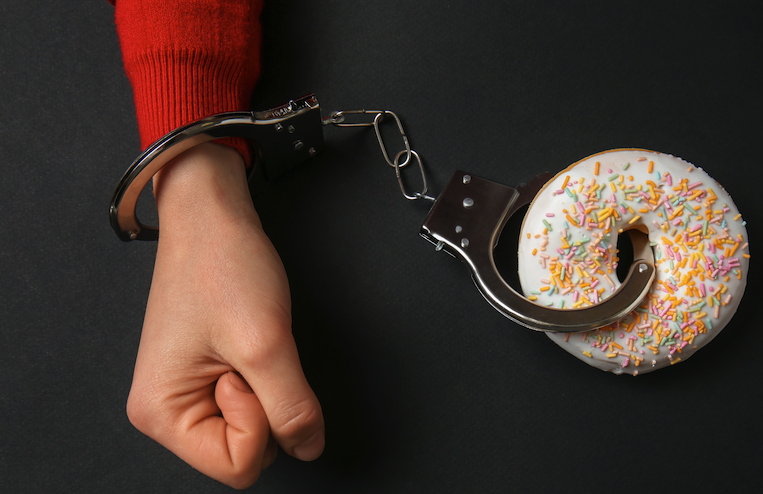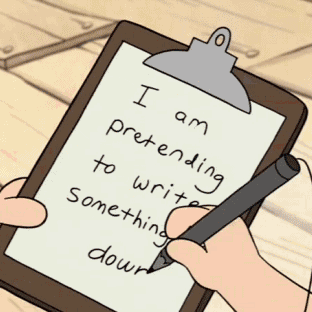
07 Nov The 6-Step Process for Breaking Bad Habits
Eating junk food. Hoarding clothes like it’s nobody’s business. Smoking. Binge-drinking alcohol. An addiction to social media. We’re all guilty of falling into bad habits that have somehow wiggled their way into our daily lives.
Take a moment to think back to a habit you’ve sworn to put an end to. Whether it was late-night snacking or biting your nails, you most likely discovered how difficult it is to shake harmful habits. Cutting ties with a bad habit requires a focused strategy, the willpower to stop, and a clear understanding of how the habit came to exist in your life.
So, is breaking a bad habit even possible? Why do they feel so impossible to break?
A large portion of understanding bad habits comes when you shift your perspective. Think about it like this: your bad habits weren’t formed after careful consideration or weighing the pros and cons of your decision. That would be ridiculous. Instead, habits are behaviors that have formed automatically, becoming so ingrained in your brain, that you aren’t actually making a conscious choice.

Ready for a little science lesson? The reason habits even exist is because our minds are hardwired to seek out shortcuts for virtually everything we do. Why? So our bodies can conserve precious energy and keep efforts focused on more important functions. When our brain becomes aware of a specific behavior that we are performing over and over, it essentially catalogs that action, allowing the mind to shift into autopilot while our bodies take over.
Pretty neat, right?
So, when you brush your teeth or scroll through your Instagram feed, you’ve probably noticed that it doesn’t require much thinking. That’s because you’ve incorporated these things so deeply into your everyday routine that they’ve become ingrained habits.
Despite conserving energy and time, some habits can be harmful; having a negative impact on our happiness, productivity, and wellbeing. #Fail. The good news? Since our habits were created by our brains, the key to saying farewell to our bad habits lies in exercising the right techniques to communicate with our minds.
Ok, I’ll admit: that sounds complicated. But, rest assured, it’s fairly easy when practiced consistently.
Hack your brain and finally put an end to those not-so-great habits with these 6 science-backed tactics.
Getting to the Crux of Your Habit
You can’t break your bad habit if you don’t understand how it manifested in the first place. So, how do you figure out why it exists? According to Pulitzer-prize winning American journalist and author of The Power of Habit: Why We Do What We Do in Life, Charles Duhigg, every habit can be broken down into three main components:
#1. The Cue: the trigger of your habit, be it a feeling, specific location, or time of day.
#2. The Routine: the actual habit.
#3. The Reward: what your habit is satisfying (i.e. a craving or a need)
Investing the time in breaking down your habit and identifying each of these three components is an important part of making strides towards eliminating it. The next few times you find yourself overspending, taking a drag of your ecig, or eating your 10th midnight cookie, pay close attention to what prompted you to carry out that particular action and what reward you’re receiving because of it.

Here’s an example. Let’s say the habit you’re striving to break is scrolling through your Facebook feed before bed because you’re having trouble falling asleep or your sleeping patterns are out of whack. First of all, give yourself a pat on the back for realizing that this habit is negatively impacting your health. After all, our bodies need proper rest each night in order to function at an optimal level.
Next, you need to ask yourself two questions, “What is triggering this routine?” and, “What am I satisfying by acting upon this habit?” Write down what you observe. For instance, you ask Alexa to turn off your bedroom lights (your “cue”), you grab your smartphone and open up Facebook (your “routine”), and by doing so, you feel socially connected with friends and family (your “reward”). Look for patterns in your behavior over the next week or so to help you gain clarity on all the individual pieces that contribute to your bad habit.
By playing doctor and diagnosing the root cause of your bad habit, it’ll make you more aware of your actions and help you to identify smart alternatives for replacing your negative behavior with a positive one. It’s also important to note that exercising awareness of your bad habit will help it transform from a subconscious, automatic action to a deliberate behavior.
Adjust Your Surroundings
Once you’ve summoned your inner Sherlock Holmes and identified the cue responsible for triggering your bad habit, you’ll have the insight necessary for squashing that cue altogether. Wondering how to smash that cue into pieces? The most effective way to pull this off is by changing up your environment.
Whether you’re taking a trip to the Caribbean in a few weeks or you devise a plan to change your surroundings at home, breaking your habit requires removing yourself from the places or situations that serve as your cues.
The goal is to stop exposing yourself to the familiar and push yourself to refresh your routine. Vacations or work-related trips serve as great outlets for breaking bad habits as your mind won’t be subjected to its usual triggers. Thus, rather than having to wrestle with your instincts, you’ll be preoccupied with your new environment and less focused on your bad habit.
If sipping a strawberry daiquiri on the beach isn’t (unfortunately) something you plan on doing in the near future, there are other ways to hack your routine and eliminate that pesky cue.
Let’s go back to the earlier example where you discovered that asking Alexa to shut off your lights served as the cue that led to you eagerly scrolling through your Facebook feed. Get creative and try different strategies, like manually shutting off your lights, reading a book before catching some shut-eye, or placing your phone away from the bed where you can’t just grab it.
Adopt a Positive Attitude
When trying to shake a bad habit, it’s natural human behavior to frame your goal in a negative light, rather than a positive one. We use phrases like, “I’m going to stop biting my nails” and “I will quit my love affair with the snooze button.” Research shows that our brains are more likely to acquire new habits or meet certain goals when we focus on achieving a desirable outcome over eliminating an undesirable outcome.
On paper, that would look something like this: “I will eat healthy” versus “I’m going to stop eating junk food.” Or, “I’m going to cook dinner more often” versus “I’m going to stop splurging on Seamless.”
According to Psychology Today, when we pursue negative goals, it tends to deter positive progress – we become lazy, feel incompetent, and our level of satisfaction plummets. The takeaway here is to always craft your goals in a way that reads in a positive manner.
Fall in Love with Something Better
Once a habit forms and becomes instinctual, it can be incredibly difficult for our minds and bodies to simply just shut it off. The real trick to saying sayonara to a bad habit is to replace your routine with something new. And the real kicker here is you can keep the same cue, just insert a better behavior in place of the old one.
Back to our highly cherished example of a nighttime Facebook addiction. The reward here was the social interaction and the feeling of being connected to friends and loved ones. Why not satisfy that craving in a different way? You can FaceTime your bestie, call your mom, or start a new tradition of writing letters to a long-distance friend (yes, through the actual mail, not e-mail).

Find what works best for you and start incorporating it into your everyday routine. When you fall in love with a better habit, you’ll find that it still satisfies your craving and over time, becomes second nature.
Include Your Friends in Your Journey
Your friends are your support system. When you share your goals with others, something incredibly powerful happens to us on a psychological level – a greater motivation to achieve our desired outcome. Grab a latte with a friend and talk about how you’re progressing towards your goal. Not only will it help you reinforce good behaviors, but it’ll provide you with the encouragement and support you need to continue pushing forward. Everyone appreciates hearing, “I’m proud of you” or “Good job!”
Be real: do you want to tell your friends or family members you got lazy and stopped pursuing your goal? Heck no. That’s like putting yourself center stage at a talent show and just standing silently in the spotlight (maybe if you stand super still, they won’t be able to see you). Once you put your goal out there, you’ll feel driven and obligated to follow through with it.
And don’t forget: reaching your goal means you get to celebrate with loved ones.
♪ ♫ ♬ Down, down, do your dance, do your dance ♪ ♫ ♬.
Show Yourself a Little Self-Love
When you make the decision to tackle a bad habit once and for all, you’re going to experience some snags and setbacks. No journey is ever perfect. After all, shelling out an extra $20 bucks ordering takeout seems a whole lot easier than cooking after a look day of work.
When you hit little speedbumps and fall back into your old ways, don’t beat yourself up. Accept that it’s going to happen and remember to always show yourself kindness – even when things don’t go according to plan.

Messing up every once in a while is perfectly fine, but if you start bashing yourself for every little slip-up, your goal will start becoming intertwined with negative emotions. And if you start associating your goal with negative feelings, it’ll only impede your progress and derail your motivation.
As with learning anything new in life, mistakes are valuable. They’ll teach you important lessons about yourself, your bad habits, and how you can take more productive steps towards attaining your goals.
Buh-Bye Bad Habits
Continuing a bad habit is easy. It’s comfortable. It requires zero thought or work on your part. But, as Aristotle said, “We are what we repeatedly do. Excellence, then, is not an act but a habit.”
Yes, I decided to get all philosophical on you. But these words hold so much truth. You’re in control of your life. If you want to change, the power lies in your hands. So, drop the excuses and get moving – it’s time to break those bad habits!


No Comments